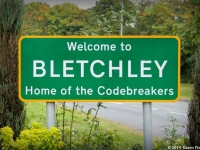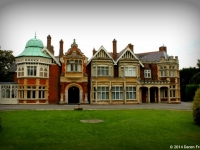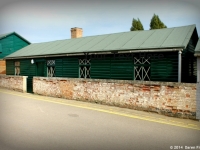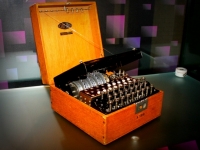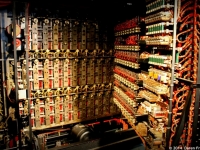News
GCHQ pays tribute to Alan Turing
Bletchley Park
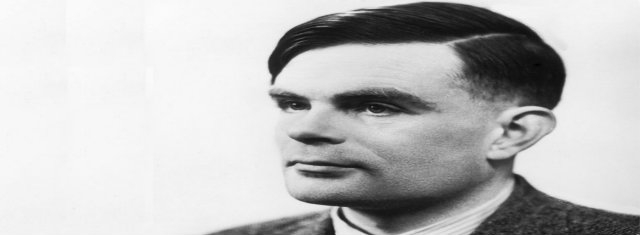
Alan Mathison Turing, OBE, FRS (Source: Stock Photograph)
USPA NEWS -
As the Academy Awards ceremony approaches, GCHQ is really pleased that Alan Turing´s contribution to the cryptanalytic success of Bletchley Park during the Second World War continues to attract the attention of such a wide spectrum of people“”from mathematicians to artists.
Whilst not being a documentary, The Imitation Game does convey some of the brilliance and tenacity of Turing and his colleagues as they overcame seemingly insurmountable problems upon which the very future of our nation depended.
We are also reminded that diversity, in all its forms, is something which only strengthens organisations and GCHQ prides itself on being one such organisation which led the way in recruiting the brightest and the best in whatever form it came. Turing´s enduring legacy combines technical brilliance with the value of diversity, both of whichinspire all of us at GCHQ to this day.
We are also reminded that diversity, in all its forms, is something which only strengthens organisations and GCHQ prides itself on being one such organisation which led the way in recruiting the brightest and the best in whatever form it came. Turing´s enduring legacy combines technical brilliance with the value of diversity, both of whichinspire all of us at GCHQ to this day.
As former Director of GCHQ, Sir Iain Lobban, said in his 2012 speech marking the centenary of Turing´s birth:
“I strongly believe a Sigint agency needs the widest range of skills possible if it is to be successful, and to deny itself talent just because the person with the talent doesn´t conform to a social stereotype is to starve itself of what it needs to thrive.“
“I strongly believe a Sigint agency needs the widest range of skills possible if it is to be successful, and to deny itself talent just because the person with the talent doesn´t conform to a social stereotype is to starve itself of what it needs to thrive.“
About Alan Turing
Posthumously, the most famous alumnus of Bletchley Park, Alan Turing was recruited in 1938 and after taking part in some specially devised courses, joined Bletchley Park in September 1939. He worked with Dilly Knox on Enigma and met Polish counterparts in Paris early in 1940. He designed the Bombe, the first special-purpose cryptanalytic machine, and made major contributions to the exploitation of German Naval Enigma, before moving on to work on secure speech systems. After the war, working at Manchester University, he and Max Newman, another BP mathematician, led a team that produced Britain's first general purpose stored programme computer (Ferranti Mk 1).
Click on link below to view more photos of Bletchley Park.
Posthumously, the most famous alumnus of Bletchley Park, Alan Turing was recruited in 1938 and after taking part in some specially devised courses, joined Bletchley Park in September 1939. He worked with Dilly Knox on Enigma and met Polish counterparts in Paris early in 1940. He designed the Bombe, the first special-purpose cryptanalytic machine, and made major contributions to the exploitation of German Naval Enigma, before moving on to work on secure speech systems. After the war, working at Manchester University, he and Max Newman, another BP mathematician, led a team that produced Britain's first general purpose stored programme computer (Ferranti Mk 1).
Click on link below to view more photos of Bletchley Park.
more information: https://www.uspa24.com/alben-482/bletchley-park-united-kingdom.html
Liability for this article lies with the author, who also holds the copyright. Editorial content from USPA may be quoted on other websites as long as the quote comprises no more than 5% of the entire text, is marked as such and the source is named (via hyperlink).

